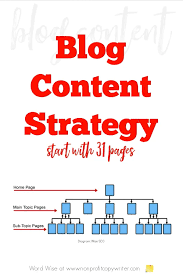Content writing is the backbone of any successful online marketing strategy. Whether you’re looking to increase traffic, boost sales, or establish your brand as an authority in your niche, high-quality content is essential. However, it’s not just about writing words on a page—it’s about creating engaging, purposeful content that resonates with your audience and drives measurable results.
In this blog post, we will break down the essential strategies for mastering content writing that will elevate your online marketing efforts and deliver tangible success.
1. Know Your Audience Deeply
Before you write a single word, it’s crucial to understand who you’re writing for. Content that resonates with your audience will always outperform generic material. To master content writing, you need to know your audience inside and out.
Start by creating detailed audience personas that represent your ideal customers. These personas should include demographic information such as age, gender, location, interests, pain points, and purchasing behavior. Additionally, conducting surveys, analyzing social media engagement, and reviewing customer feedback can help you gain deeper insights into what your audience truly wants and needs.
Understanding your audience will allow you to tailor your tone, language, and subject matter to match their preferences, making your content more impactful and relevant.
2. Craft High-Quality, Valuable Content
Creating high-quality content goes beyond flawless grammar and spelling. Content that adds value to your readers’ lives will naturally outperform fluff or filler content. Whether you’re writing blog posts, landing pages, or product descriptions, your focus should always be on delivering value.
Here are some tips to create content that truly serves your audience:
- Solve Problems: Identify common issues or questions your target audience faces and provide solutions through your content. Offering practical, actionable advice can help position your brand as a trusted resource.
- Provide Unique Insights: Avoid rehashing information that’s already available on the web. Provide fresh insights, research, or expert opinions to differentiate your content.
- Be Engaging: Write in a conversational tone that invites readers to keep reading. Break up your content with engaging subheadings, bullet points, and clear structure to make it easy to digest.
The more useful and unique your content is, the more likely it is to be shared, bookmarked, and linked to by others—boosting your visibility and authority in your niche.

3. Optimize for SEO
While content quality is paramount, it’s also essential to make sure that your content is discoverable by search engines. To achieve this, you need to implement effective SEO (Search Engine Optimization) practices that will help your content rank well and attract organic traffic.
Start by conducting keyword research to identify the phrases and terms that your target audience is searching for. Tools like Google Keyword Planner, Ahrefs, and SEMrush can help you uncover high-ranking keywords relevant to your industry.
Once you have your keywords, strategically integrate them into your content, but don’t overstuff them. Focus on natural incorporation within titles, headings, meta descriptions, and body text. In addition to keywords, make sure your content is optimized for user experience by:
- Writing compelling, click-worthy headlines
- Using internal links to guide readers to related content on your site
- Including external links to authoritative sources that add credibility
By optimizing your content for SEO, you’ll improve your chances of ranking higher in search engine results and driving targeted traffic to your website.

4. Focus on Compelling Headlines and CTAs
Your headlines are the first thing readers see, and they play a critical role in whether or not someone clicks to read your content. A compelling headline grabs attention and entices people to learn more.
To craft effective headlines:
- Be specific and clear: Let your readers know exactly what they’ll get from reading your content.
- Use power words: Words like “essential,” “ultimate,” “proven,” and “guaranteed” create a sense of urgency or authority.
- Incorporate numbers: Headlines with numbers (e.g., “5 Tips for Writing Better Content”) are often more appealing and easy to digest.
In addition to crafting a killer headline, always include a strong Call to Action (CTA) at the end of your content. Whether you want readers to subscribe to your newsletter, download an ebook, or make a purchase, a clear CTA guides them toward the next step and boosts your conversion rates.
5. Create a Content Calendar
Consistency is key when it comes to content creation. A well-planned content calendar ensures that you’re publishing regularly and strategically. By planning ahead, you can align your content with marketing campaigns, product launches, and seasonal trends, ensuring that every piece of content supports your broader business goals.
A content calendar allows you to:
- Stay organized: Plan topics, deadlines, and publishing dates in advance.
- Track content performance: Monitor which types of content are performing well and adjust your strategy accordingly.
- Maintain consistency: Publish regularly without scrambling for ideas at the last minute.
When you establish a consistent posting schedule, it shows your audience that you’re reliable and dedicated to providing them with fresh content.

6. Measure and Analyze Content Performance
Creating great content is only half the battle. To improve your content writing and strategy over time, it’s essential to track how your content performs. Use analytics tools like Google Analytics or SEMrush to monitor key metrics such as:
- Traffic: How many people are visiting your content?
- Engagement: Are visitors interacting with your content (comments, shares, time on page)?
- Conversions: Are visitors taking the actions you want, like signing up for your newsletter or purchasing a product?
By analyzing performance, you can identify what’s working and what needs improvement. This data-driven approach will help you refine your content strategy, ensuring long-term success.
Conclusion
Mastering content writing is an ongoing process that requires continuous learning and adaptation. By understanding your audience, creating valuable content, optimizing for SEO, and consistently analyzing performance, you’ll be well on your way to building a successful online marketing strategy. With the right approach, content writing can become your most powerful tool for driving traffic, increasing engagement, and boosting conversions.
Now’s the time to put these essential content writing strategies into practice and elevate your online presence to new heights.
Related Tags:
- Content Writing Tips
- SEO Content Writing
- Digital Marketing Strategies
- Content Creation
- Content Strategy
- Content Marketing
- Online Marketing Success
- SEO Optimization
- Audience Engagement
- Content Planning
- Website Traffic Growth
- Marketing with Content













